Health & Social Care

CURRICULUM ETHOS
The Health and Social Care curriculum at Eastbrook School is designed to prepare students for further education or employment within the Health and Social Care sector. The primary aim of the curriculum is to develop a comprehensive understanding of how professionals provide care and support for individuals with a range of physical, emotional, and social needs. Students gain insight into the principles, values, and practices that underpin effective care in a variety of settings, including hospitals, residential homes, and day care centres. Through the Health and Social Care curriculum, students explore the professional responsibilities associated with working in care environments. This includes developing an understanding of safeguarding, equality and diversity, communication, and health and safety. The curriculum places a strong emphasis on adopting a person-centred approach to care, supported through the study of real-life case studies, reflective discussion, and practical experience. Key areas of study include anatomy and physiology, nutrition, infection control, and the broader factors influencing health and well-being.
The Health and Social Care Curriculum in Summary
The Health and Social Care curriculum at Eastbrook School is designed to provide a coherent and progressive learning journey from Key Stage 4 (KS4) through to Key Stage 5 (KS5). It equips students with the knowledge, skills, and values required to understand and work within the health, social care, and early years sectors. At Key Stage 4, students are introduced to the core principles and values of health and social care. They study health promotion campaigns, care values, safeguarding, life stages, and human development, gaining a strong foundation in how to support individuals in a variety of care settings. Students develop an understanding of individual rights and person-centred values, as well as knowledge of growth and development through the life stages. They also build awareness of infection prevention, safeguarding, and safety and security measures that are essential in care environments. Throughout the KS4 curriculum, students strengthen their communication and interpersonal skills, which are vital in professional care roles. They also develop transferable skills such as research, evaluation, planning, and presentation, which are applicable to both further study and the workplace. Assessment is carried out through a combination of controlled assessments and an external examination, allowing students to demonstrate their ability to apply theoretical understanding to real-world contexts.
The KS4 curriculum provides a solid foundation for progression into the Level 3 Health and Social Care Extended Diploma at KS5. At this stage, students build upon their prior learning by exploring more complex and applied aspects of health and social care practice. At Key Stage 5, students deepen their understanding of how professionals provide care and support for individuals with a range of physical, emotional, and social needs in settings such as hospitals, residential homes, and day care centres. The curriculum develops advanced knowledge and understanding of anatomy and physiology, nutrition and health, infection control, safeguarding, and health and safety within care environments. Students also learn how to build positive relationships, communicate effectively, and adopt a person-centred approach through the use of real-life case studies, research projects, and work experience placements. Overall, the Health and Social Care curriculum at Eastbrook School provides a clear and structured pathway from foundational learning at KS4 to advanced applied study at KS5, ensuring that students are well-prepared for their next steps in education, training, or professional practice.
Diversity and Inclusion in the Health and Social Care Curriculum
The Health and Social Care curriculum at Eastbrook School actively promotes equality and inclusion through its content, teaching approaches, and underlying values. From Key Stage 4 through to Key Stage 5, students are taught the importance of equality, diversity, and individual rights, and they learn how to challenge discrimination in all its forms. Lessons explicitly focus on inclusive practice, helping students to understand how to meet the needs of individuals from a wide range of backgrounds, abilities, and circumstances.
The curriculum places a strong emphasis on adopting a person-centred approach, where every individual’s dignity, independence, and choice are respected. This principle is embedded in all units of study, mirroring the expectations of professional practice in health and social care settings. Students explore how factors such as age, disability, culture, gender, sexuality, and socio-economic background can influence people’s experiences of care. Through this, they learn how to provide fair and inclusive support that values everyone equally. Equality and inclusion are further promoted through the use of diverse case studies, scenarios, and role-play activities that reflect the variety of individuals students may encounter in real-world care environments. These examples encourage students to develop empathy, cultural awareness, and an appreciation for the unique circumstances of others.
The curriculum is designed to be accessible to all learners. Teachers use a range of assessment methods, including controlled assessments, practical tasks, and written examinations, to allow students with different strengths and learning styles to achieve success. Lessons are carefully planned to include differentiation and support, ensuring that every student can engage with and understand complex concepts. Work experience opportunities at Key Stage 5 also play a key role in promoting inclusion. These placements allow students to apply their knowledge and skills in real care settings, developing professional behaviours that reflect respect, equality, and fairness.
Finally, the structured progression from KS4 to KS5 ensures that all students, regardless of their background, have the opportunity to achieve their potential and progress to higher education, training, or employment. In this way, the Health and Social Care curriculum not only promotes equality and inclusion within the classroom, but also helps to prepare students to become compassionate, reflective, and inclusive professionals in the future.
Cultural Capital and Enrichment in the Health and Social Care Curriculum
The Health and Social Care curriculum at Eastbrook School is designed to build students’ cultural capital by broadening their understanding of the world around them and deepening their appreciation of the diverse communities that make up modern society. Through the study of health, wellbeing, and care practices, students gain insight into how social, cultural, and economic factors influence people’s lives and their access to care and support. This helps students to develop empathy, respect, and an informed awareness of the world beyond their own experiences.
Students are introduced to a wide range of case studies and real-life scenarios that reflect individuals from different cultures, backgrounds, and circumstances. These examples enable them to appreciate the variety of beliefs, traditions, and lifestyles that exist in the UK and globally, fostering an understanding of equality, diversity, and inclusion in everyday life. By learning about these differences, students become more tolerant, compassionate, and socially responsible citizens. Cultural capital is also developed through opportunities for enrichment and practical experience.
Work experience placements at Key Stage 5 allow students to engage directly with health, social care, and early years settings, gaining first-hand experience of professional practice and community involvement. These placements help students to build confidence, develop communication skills, and understand the value of teamwork and service to others. The curriculum includes opportunities for students to participate in visits, guest speaker sessions, and community projects linked to health and social care themes. These enrichment experiences help students to connect their classroom learning to real-world contexts, deepening their understanding of issues such as public health, safeguarding, and social inequality.
Literacy and Oracy in the Health and Social Care Curriculum
The Health and Social Care curriculum at Eastbrook School actively promotes both literacy and oracy to ensure students are confident communicators, able to express their ideas clearly and understand complex information. Throughout Key Stage 4 and Key Stage 5, students engage with a variety of texts including case studies, reports, research articles, and policy documents, which helps develop their reading comprehension and ability to analyse and evaluate information critically. Students regularly practice writing skills by producing extended responses, reports, reflective journals, and presentations. These tasks require them to organise their thoughts coherently, use subject-specific vocabulary accurately, and write for different purposes and audiences, thereby strengthening their written communication. Oracy skills are developed through group discussions, role-plays, debates, and presentations. These activities provide students with opportunities to articulate their ideas, listen actively, respond respectfully, and build confidence in speaking in both formal and informal settings. Work experience placements also enhance oracy by requiring students to communicate effectively with professionals, clients, and colleagues in real-world care environments.

